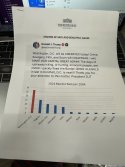I would say to this that the Americans are significantly less well informed than anyone else (other than the Indians). And that the effect of this lack of information also has more detrimental effects. Once upon a time, the Americans were so far ahead of everyone else this didn't matter, but that's no longer the case. It'd be one thing if it were just some random person spouting off nonsense about their own superiority, but it's another when it's the prevailing view among the social, intellectual, and military elites.
I'm old enough to remember the Cold War and it was a very different matter. Back then, the Americans would closely examine Soviet capabilities, their actions, and what their leadership said and used this information to form strategies and plans. This doesn't happen any more. Hell, so many American elites still talk about China as if it were the China of the '90s! They don't bother reading what Chinese leaders say or bother looking into what China even looks like.
I think that the biggest takeaway from this is less that the Americans are dumb and more that the limitations of how they view the world keep them from being able to fix the problems they have. Currently the US has all sorts of structural problems in their political system, social system, economic system, and military system. Theoretically, these are all fixable if the country is capable of identifying what the underlying causes are and they are willing to invest the effort in the solutions. But given American biases, their problems are effectively insurmountable. Which should be ridiculous for the military system given that the US still has the strongest military in the world, but it's a reflection of how useless the Americans are.
Not all Americans are particularly political, and those who are tend to be too occupied with bread and butter domestic issues to have any reasonable understanding of great power competition: not to be dismissive of or to denigrate Americans, but most aren't even familiar with the terminology.
You can't reasonably expect the overwhelming majority of Americans — including most elites — to have the interest or attention span to follow what the mandarins governing Beijing are saying, never mind the contextual knowledge for reasonably grasping what the downstream effects will be. Keep in mind that most of our "ruling elites" aren't exactly intellectuals, even if they're compelling enough to get elected.
There are obviously some informed elites in the US when it comes to China; but that absolutely does not mean their voices are heard, assuming they're even able to speak with candor, except anonymously. LOL.
This is in part why it's so easy to vilify countries like China and Russia in the West: domestic audiences on average enjoy limited, if not skewed understandings of "the competition" mostly informed by crude gists and misleading caricatures dished out by entrenched media and established elites.
Not looking to oversimplify in excess, but for the sake of discussion: if there's anything impeding better American policies and responses vis-a-vis the rise of Pax Sinica, it's a lack of political will — rather than stupidity — heavily rooted in the structural misalignments you alluded to.




